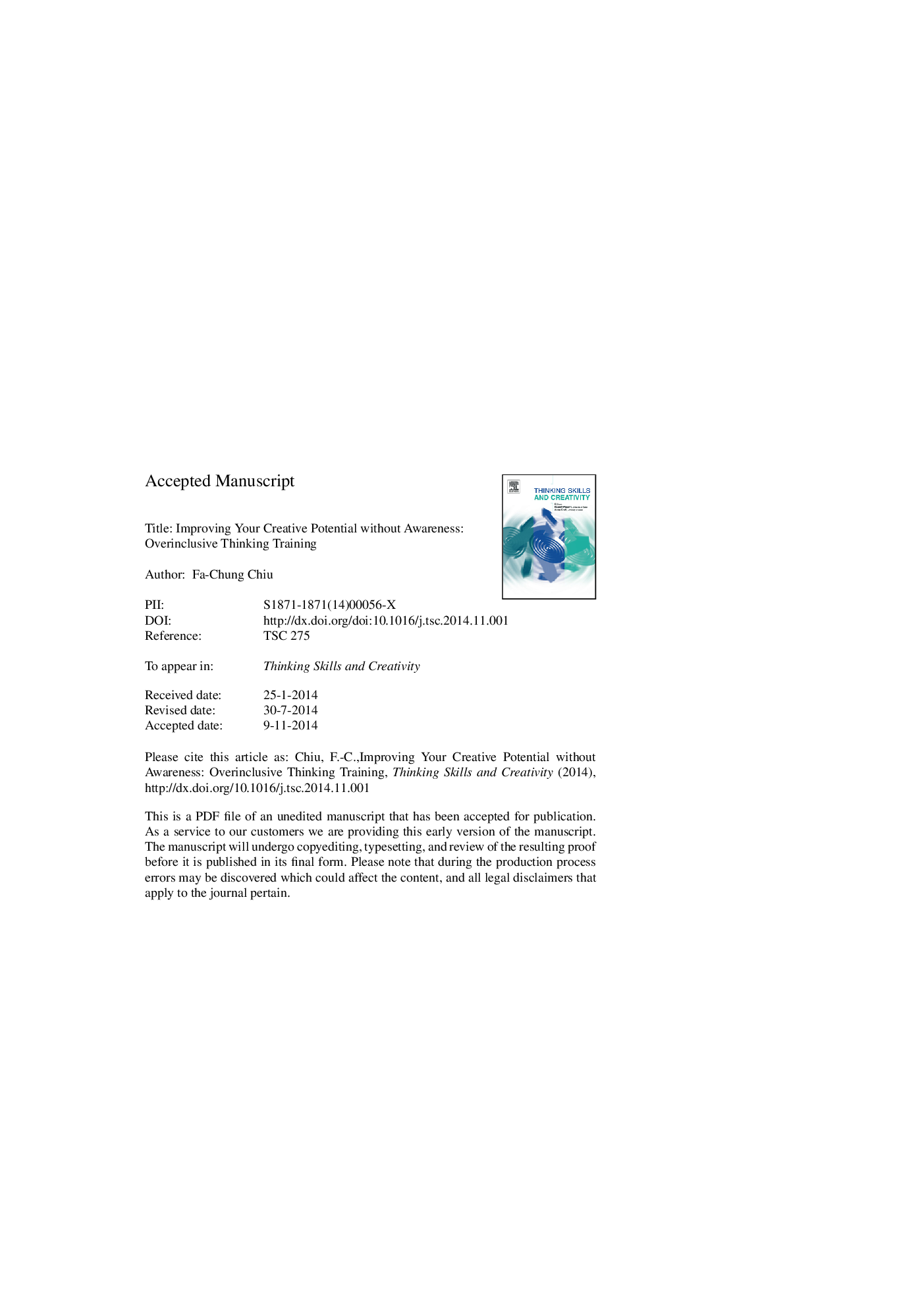| Article ID | Journal | Published Year | Pages | File Type |
|---|---|---|---|---|
| 6852028 | Thinking Skills and Creativity | 2015 | 41 Pages |
Abstract
The purpose of this study was to examine the effects of overinclusive thinking training (OTT) on creativity improvement. In Experiment 1, 40 undergraduates were randomly assigned to the OTT group or the control group. After the training, the participants were required to complete categorization tasks. The results show that the OTT enhanced participants' ability to engage in overinclusive thinking. In Experiment 2, 42 undergraduates were randomly assigned to the OTT group or the control group. After the training, the participants were required to complete the Creative Thinking Test. The results show that the performance of the OTT group regarding fluency and originality was higher than that of the control group. In Experiment 3, 56 undergraduates were randomly assigned to three groups: the control group, the long-distance semantic OTT group, or the short-distance semantic OTT group. After the training, the participants were required to solve insight problems. The results show that the performance of the long-distance semantic OTT group in insight problem solving was superior to that of the short-distance semantic OTT and the control group. In Experiment 4, 50 undergraduates were randomly assigned to the OTT group or the control group. The Creative Thinking Test was performed 7 days after training. The results show that the training effect on originality remained; however, no training effect was observed on either fluency or flexibility.
Related Topics
Social Sciences and Humanities
Psychology
Developmental and Educational Psychology
Authors
Fa-Chung Chiu,
